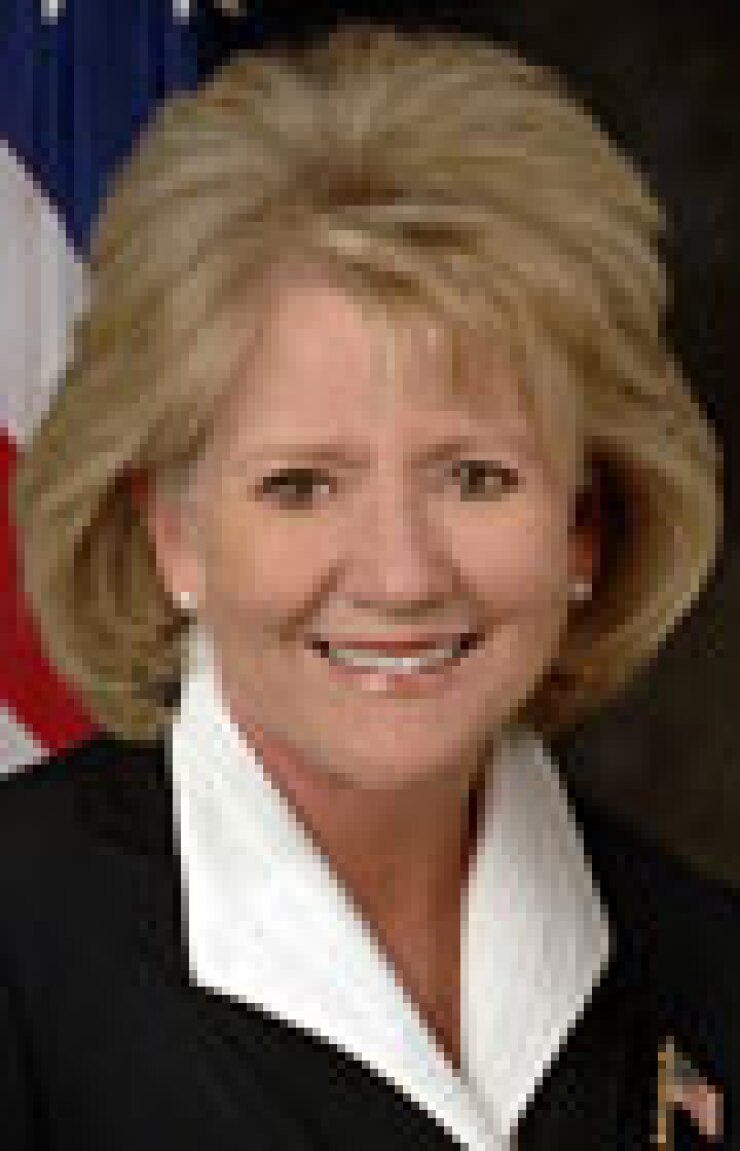
WASHINGTON - In a complete turnaround, the Department of Transportation is urging Congress to immediately pass legislation that would move $8 billion from the general fund into the highway trust fund, which DOT officials said has collected even less federal gas tax revenue than expected and is headed for a zero balance on Oct. 1.
As part of its response, the department is also changing the way it provides the highway funds to states - to pro-rated weekly reimbursements instead of the current twice-daily reimbursements - effective today.
"For over three years, we have been warning that our current levels of spending were not sustainable and that the highway account would likely go into the red before the current surface transportation legislation expires in 2009," Secretary of Transportation Mary E. Peters said Friday in a teleconference call with reporters.
The trust fund is projected to have a shortfall of $3 billion to $6 billion by the end of fiscal 2009, in part because of plummeting gas tax revenues at a time when consumers are driving less.
Outlays from the trust fund will exceed receipts by more than $8 billion for fiscal 2008, Peters said, which will exhaust the $8 billion balance that was in the trust fund at the beginning of the fiscal year.
"In September alone, we expect the highway account will take in $2.7 billion, but have reimbursement requests totaling $4.4 billion," she said.
Peters and other federal transportation officials said during the teleconference that state transportation departments have been informed of the change and that the U.S. DOT will work with states to prioritize their projects.
The first payout under the new weekly system is planned for Thursday, officials said. Each pro-rated reimbursement will be made on the basis of availability, Peters said. If funding for only 80% of reimbursement requests is available, only 80% will be paid. The remainder will be paid the following week, and "only then will [the Federal Highway Administration] provide similar, pro-rated reimbursements for the new requests received that week," Peters said.
A week-to-week rationing of highway funds "will worsen the financial crises many states are already facing, and it will delay or halt needed transportation projects and leave contractors and suppliers with IOUs instead of cash to pay their workers," John Horsley, executive director of the American Association of State Highway and Transportation Officials, said in a release.
Friday's announcement was a reversal of the Bush administration's earlier opposition to legislation sponsored by Rep. Charles B. Rangel, D-N.Y., that would have made the $8 billion transfer to the highway fund. In a July statement, the administration called Rangel's bill "both a gimmick and a dangerous precedent that shifts costs from users to taxpayers at large" and threatened a presidential veto.
The bill easily passed the House in late July and was pending in the Senate Finance Committee when both houses adjourned for recess this summer.
Peters said in a news conference Friday that Rangel's bill was "not at all what we want to be doing," but that the administration will now support it because it would be unfair to ask states to take the brunt of funding shortfalls.
"I am asking Congress to get to work on a fiscally responsible and effective transportation spending bill for the coming fiscal year - one that is free of waste and free of earmarks" that totaled $24 billion in the last transportation bill, Peters said.
Transportation funding leaders in Congress responded Friday afternoon with a flurry of statements of cautious appreciation for the administration's change of mind about the $8 billion infusion.
"I am encouraged that the administration is acknowledging the urgent need for funds to keep America's bridges and roads safe while creating thousands of new jobs with critical infrastructure projects, and urge senators who have blocked this vital funding until now to get out of the way," said Sen. Max Baucus, D-Mont., chairman of the Finance Committee. Baucus has tried unsuccessfully to insert a cushion for the highway trust fund in various Senate bills.
House Transportation and Infrastructure Committee chairman James L. Oberstar, D-Minn., worried about the federal government needing to pay interest on delayed reimbursements.
He also expressed fears that states "will begin to slow their investments in highway construction because of the cash flow problems of the U.S. Department of Transportation. Given that the United States has lost more than 600,000 jobs this year and the unemployment rate is the highest it has been in five years, we cannot afford to lose one more family-wage construction job."





